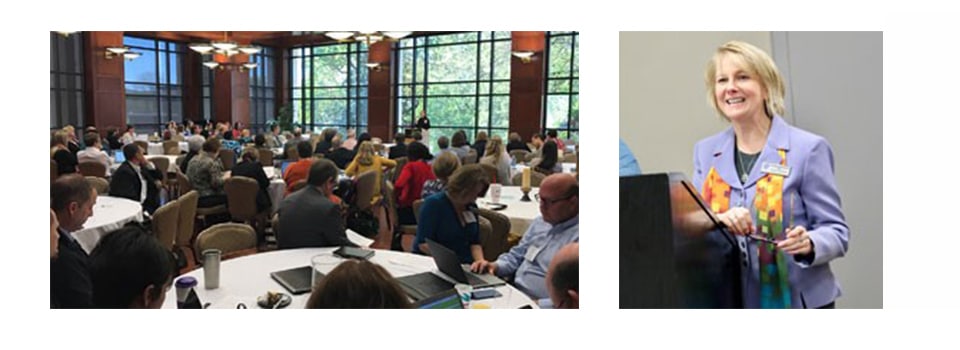External Connections Key to Advancing Chapter Work

The 47 state chapters of AACTE employ a wide variety of membership models, activity calendars, and strategic partnerships to meet the priorities of their members. While all chapters are based on the fundamental value of interinstitutional collaboration, these coalitions are not just about members talking to themselves or circling the wagons. They also provide an effective launching point for their individual and collective members to connect with external groups that lend important new perspectives and advantages.
The Arkansas Association of Colleges for Teacher Education (ArACTE) offers an example of how connections forged outside its membership boost its capacity to focus on advocacy priorities as a group–and on common programmatic concerns at the campus level.
A Regular EPP-State Dialogue

ArACTE board member Gary Bunn, director of admissions and licensure in the Office of Candidate Services at the University of Central Arkansas, says the chapter’s success in the state policy arena stems from a key routine: monthly meetings of educator preparation provider (EPP) deans with officials from the state Department of Education.
“The regular deans’ meetings are primarily for dialogue–to connect state people with EPPs,” Bunn said, noting that they are very well attended. “Just having that conversation is so good, and there’s a powerful advocacy component as well,” such as when the deans’ solidarity on an issue ends up changing the state’s plans.
ArACTE deans’ efforts already have led to some advocacy successes, such as winning stronger language in state policy to define what constitutes a teacher residency. Arkansas’ education policy environment is complicated, with what feels like a maze of little-connected reforms around charter schools, hiring waivers, and licensing alternatives shaped by the state’s ongoing teacher shortages. Particularly in light of concerns around low-quality routes to licensure, Bunn said, advocacy continues to be the chapter’s chief priority.
National Alliances Provide a New Lens
To augment the impact of the state deans’ meetings, ArACTE has tapped into national resources by bringing in guest speakers to its annual conferences and sending members to AACTE’s Day on the Hill for advocacy training. It also recently invested in an associate membership in the National Association of State Directors of Teacher Education and Certification (NASDTEC) to gain access to the “NASDTEC KnowledgeBase” and other resources related to educator preparation policy and practice around the country.
The ArACTE board was particularly interested in resources related to NASDTEC’s Model Code of Ethics for Educators, which has been embraced for Arkansas teacher licensure and must be addressed in all preparation programs. With the 25 individual logins provided under NASDTEC associate membership, every EPP in the chapter can access the organization’s webinars, white papers, research briefs, and other helpful information for both benchmarking and branching out in their programs.
This creative action as an organization has increased the value of membership in ArACTE. “It’s given us a different lens to look at the work in our own state,” said Bunn. The chapter not only facilitates peer-to-peer benefits but also empowers its members to reach outside their community as a unit.
Tags: advocacy, ethics, school-university partnerships, state affiliate, state policy






